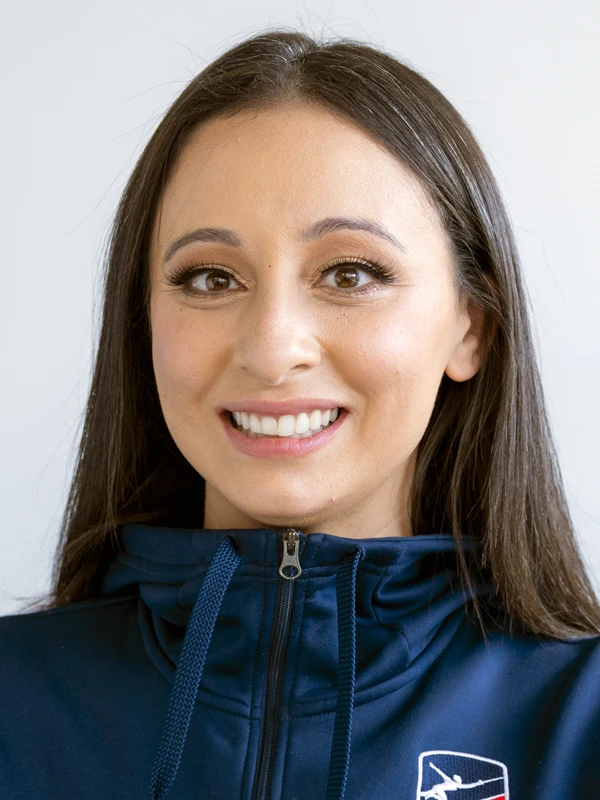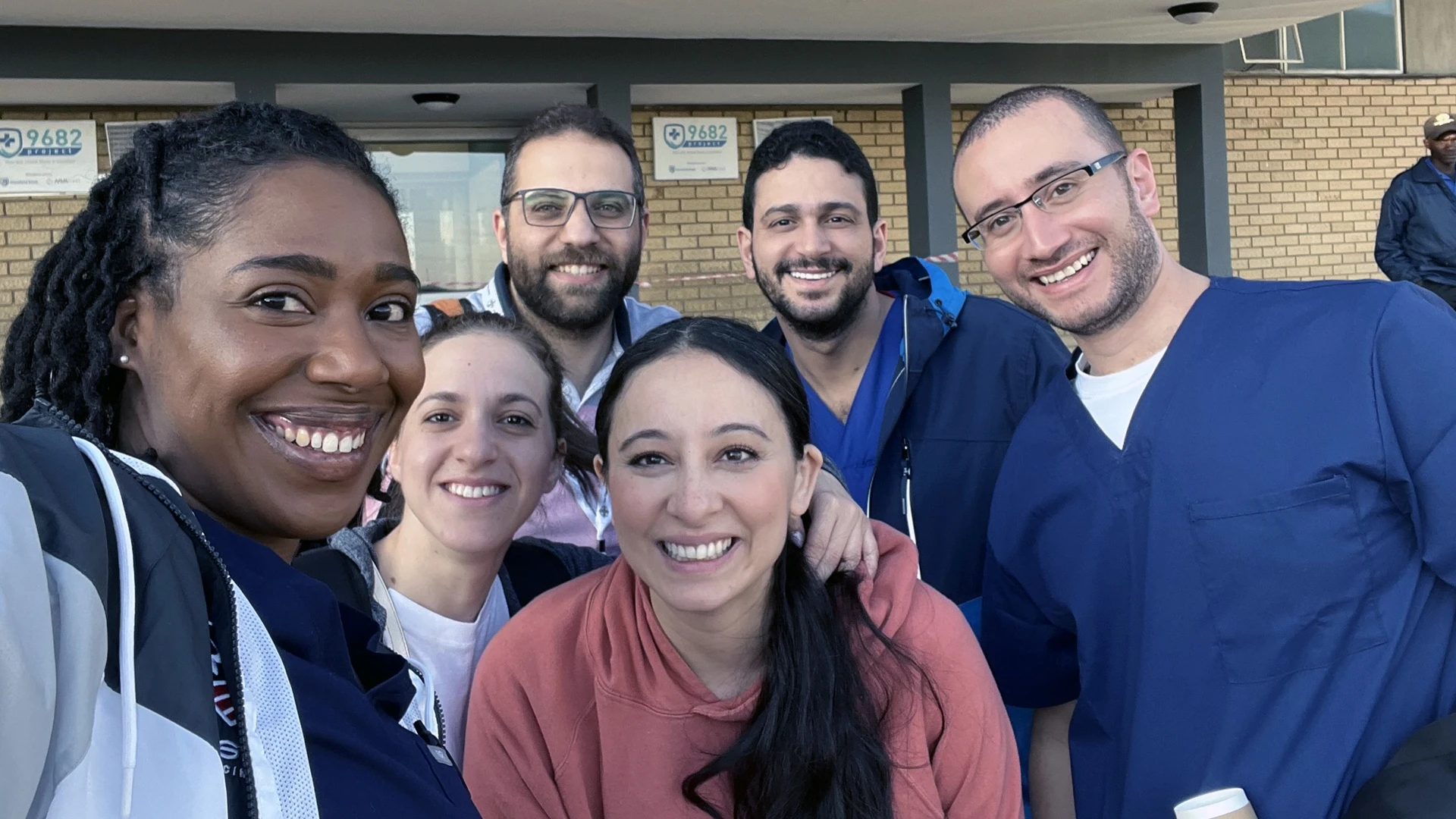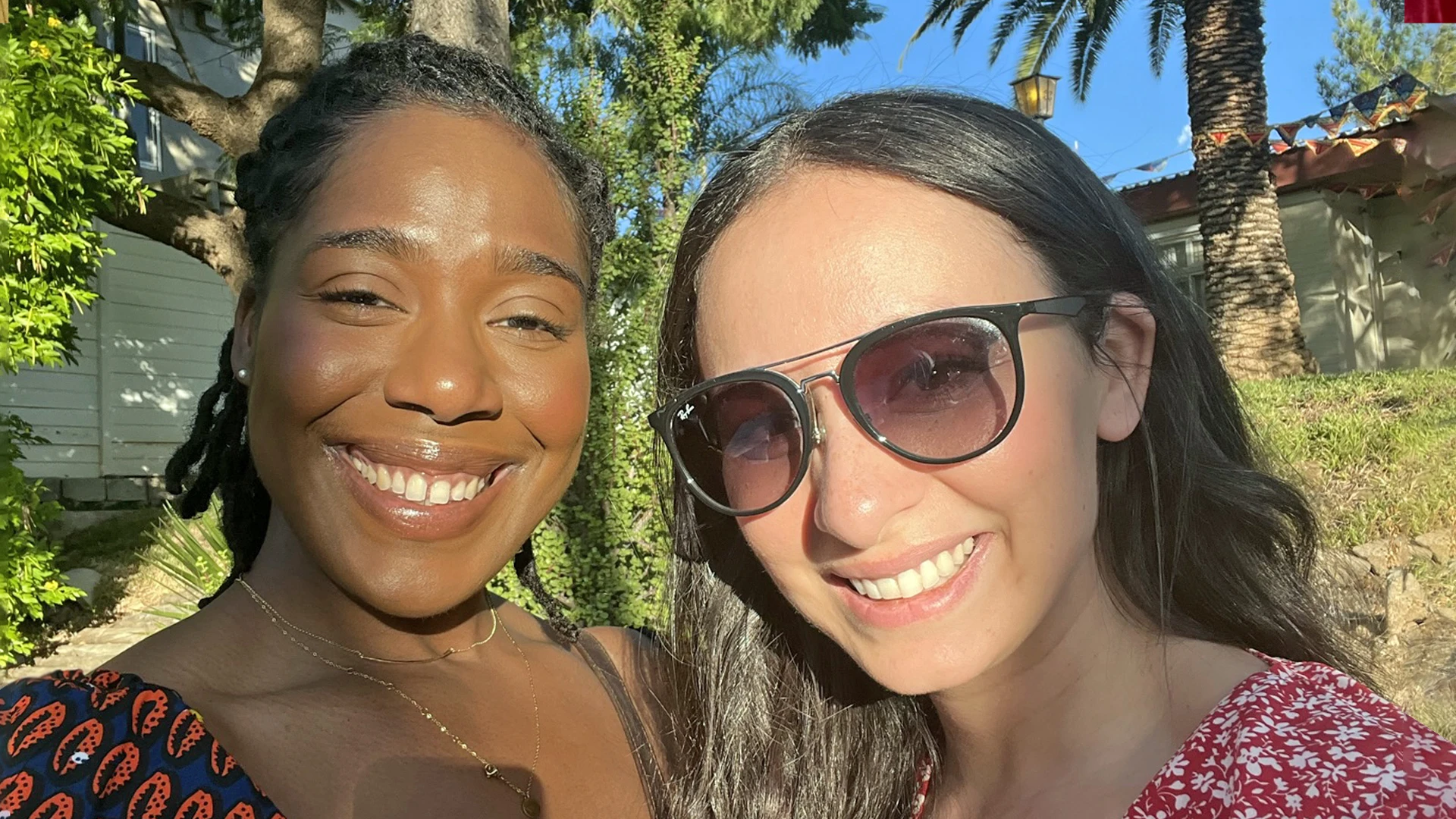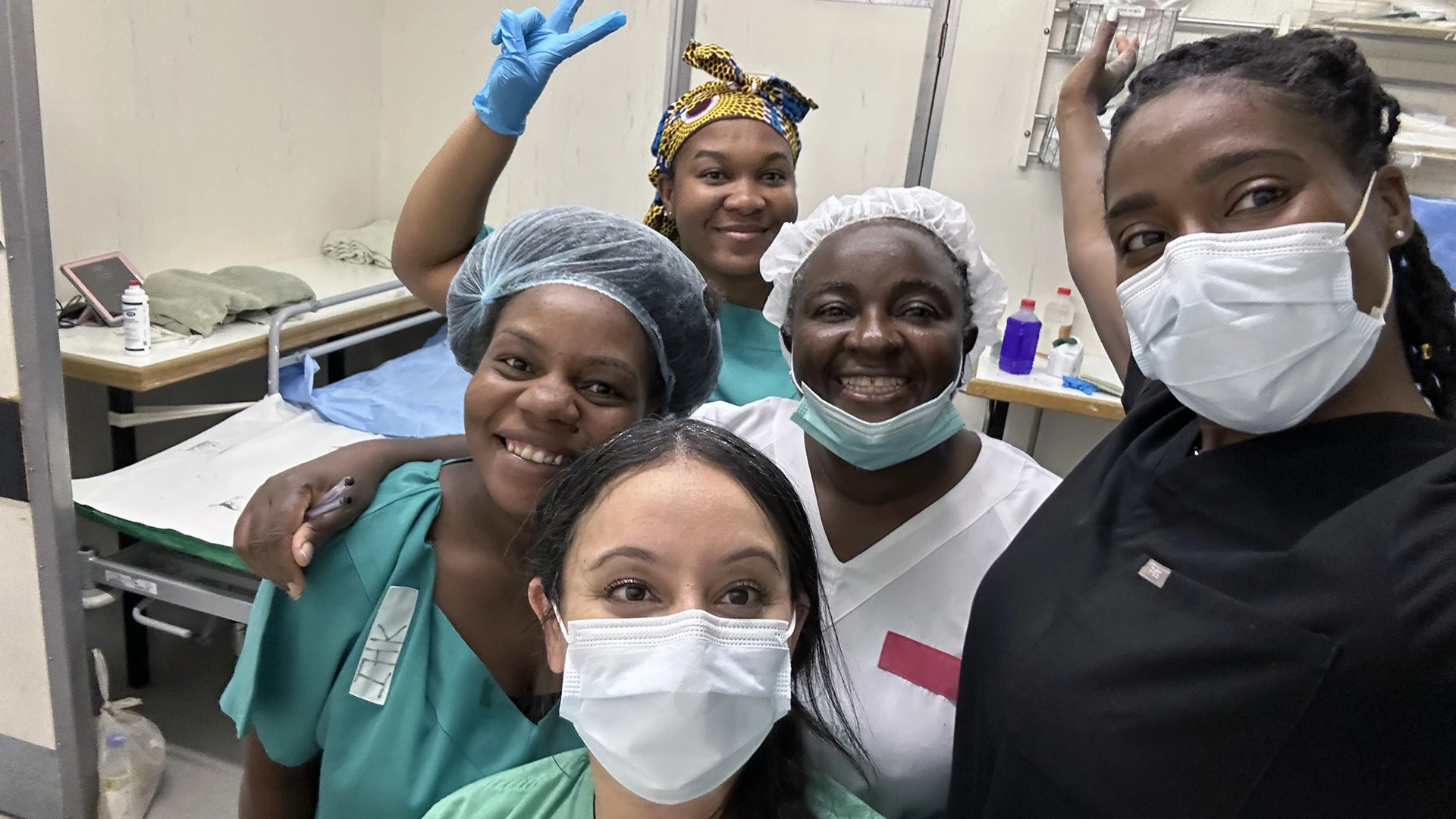In April, Mariam Zakhary, DO, Assistant Professor of Sports Medicine, and Interventional Spine Medical Director at the Department of Rehabilitation and Human Performance at Mount Sinai Union Square, was packing for a trip to Namibia. She gathered her traveling necessities: her passport, a neck pillow, but also—syringes, lidocaine, bupivacaine, and a portable ultrasound.
This trip was not a typical vacation. Dr. Zakhary is a volunteer with the Coptic Medical Association Mission, a Manlius, New York-based company that delivers primary care and subspecialty services to patients around the world, and she has done this annual service trip for several years. With the support of the Department of Rehabilitation and Human Performance, in which she is Medical Director at the downtown location, she is leaving a lasting impact that will continue to serve patients, even if she isn’t there in person.

Mariam Zakhary, DO, first started doing the service trips to Namibia in 2019. She wasn't sure what to expect, but by the end of that nine-day trip, she had treated 50 patients. Since then, in her most recent trip in 2023, the team was seeing as many as 300 patients a day.
During the trip, Dr. Zakhary conducts patient evaluations and administers steroid injections and local anesthetics—the same thing she does each day as sports and interventional spine expert at Mount Sinai—but there are some differences. First, she only has access to a C-Arm—the X-ray machine she uses to do some patient injections—in the afternoons, as it is in use by local orthopedics each morning. Second, there are higher incidences of HIV/AIDS in Namibia, which necessitates the use of hyaluronic gel injections among many patients as steroids can suppress the immune system among patients with high viral loads.

Dr. Zakhary (right) faced several challenges during her trip, including the lack of available equipment she is used to at Mount Sinai. For example, she only has access to the C-Arm X-ray machine in the afternoons as the same machine is used by other doctors in the morning.
Even though there are similar workflows, Dr. Zakhary does not see what she does there as work. “Because I am there to help people and need to optimize my time, I never think about my own stress or issues, so it is very freeing,” she says. “Also, the people there—the staff, the community liaisons, the patients—are like family now.”
Embodying ‘We Find a Way’
Dr. Zakhary made her first trip to Namibia in 2019 after a friend’s father, who volunteers with the organization, indicated they were looking for an interventional pain specialist. At the time, she was a sports medicine fellow who had participated in several medical volunteer trips in the U.S. during her time in medical school and residency. These experiences often necessitated innovative thinking and approaches given that certain tests and equipment were not readily available. That inventiveness would be invaluable preparation for volunteering overseas, which was something she had long wanted to do.
“I saw medicine as an occupation of service to others,” she says. “I always wanted to do that. An opportunity like this felt like a blessing.”
Other than the fact that she might be very busy, Dr. Zakhary did not know what to expect from that first trip, in terms of scope of patient numbers and case complexity. She learned that very few Namibians have access to chronic pain management options beyond simple pain relievers such as ibuprofen or acetaminophen/paracetamol, and prior to the trip, there had been a major media campaign announcing the arrival of the organization. By the end of that nine-day trip, she had treated 50 patients.
“I think people did not know what conditions we were capable of treating,” says Zakhary, who is also Program Director of the Sports Medicine Fellowship and Director of Running Medicine. “But those 50 people told their families and friends about what we did, and it grew from there.”
Dr. Zakhary has returned to Namibia each year, except for in 2020 and 2021 due to the COVID-19 pandemic. Fast forward to March 2023, there were 300 patients waiting for treatment each day. Although Dr. Zakhary had assistance from a Mount Sinai sports medicine resident for the first time ever, there were four days that she worked until 9 pm. Realizing she could not keep pace with demand, Dr. Zakhary trained two local health care residents in administering peripheral joint injections. Both had expressed an interest in pain intervention and excelled in learning patient anatomy and safety protocols. On the last day of the service trip, the trainees performed 40 trigger point and knee injections for pain relief.
“One of the other students was probably better than me at doing knee injections by the time we left,” Dr. Zakhary says. “That was a huge accomplishment because they will be able to continue helping people there with pain.”
The potential to establish more sustainable approaches to care is what really excites Dr. Zakhary. Following her return from this year’s trip, Dr. Zakhary is collaborating with the International Rehab Forum, a Vermont-based organization that brings together medical experts and institutions to build rehabilitation medicine in low-resource and isolated countries, on a pain intervention training curriculum for Namibian physicians. She was also approached by David Putrino, PhD, Director of Rehabilitation Innovation for the Mount Sinai Health System, to conduct a needs assessment that could lead to the development of a pediatric rehabilitation center in Windhoek, Namibia.
“It is great to bring more rehab knowledge and resources there,” Dr. Zakhary says. Mount Sinai’s expertise in treating a wide variety of cases and medical education makes it a great fit for this endeavor. And in many ways, the health system’s motto of “We Find a Way” exemplifies her experience not just with connecting patients to care in Namibia, but also ensuring they continue to have access, she notes.
“It’s not about having a hero complex that we need to save the day. It’s about figuring out what needs to be done, and we need to educate local doctors to do that,” she says.
As Dr. Zakhary prepares for her next trip in March 2024, she realizes the experience has been as transformative for her and her practice, as much as it has been for her patients and care providers in Namibia.
“In Namibia, the culture is more laid back,” she explains. “The biggest lesson I learned is to adapt to that. In doing so, I realized I could do the same in New York where we treat people from so many different cultures. Now, whenever I enter the exam room, I remember I am entering the patient’s world and adapt to them.”
Featured

Mariam Zakhary, DO
Medical Director, Downtown Rehabilitation and Human Performance


